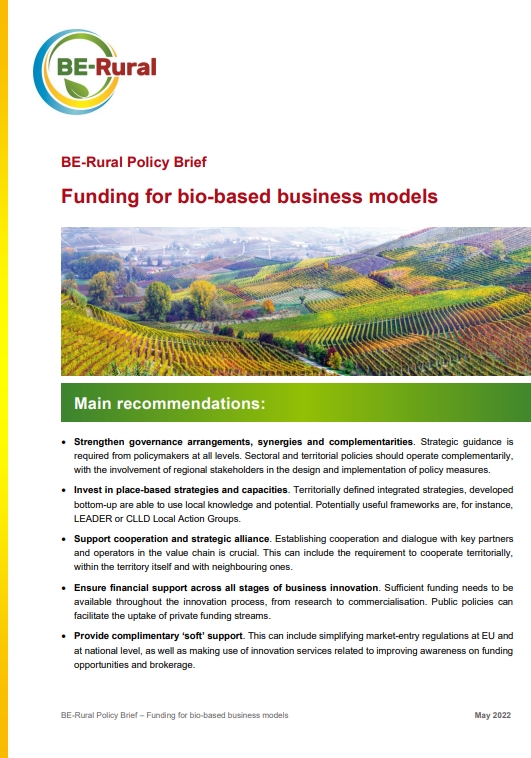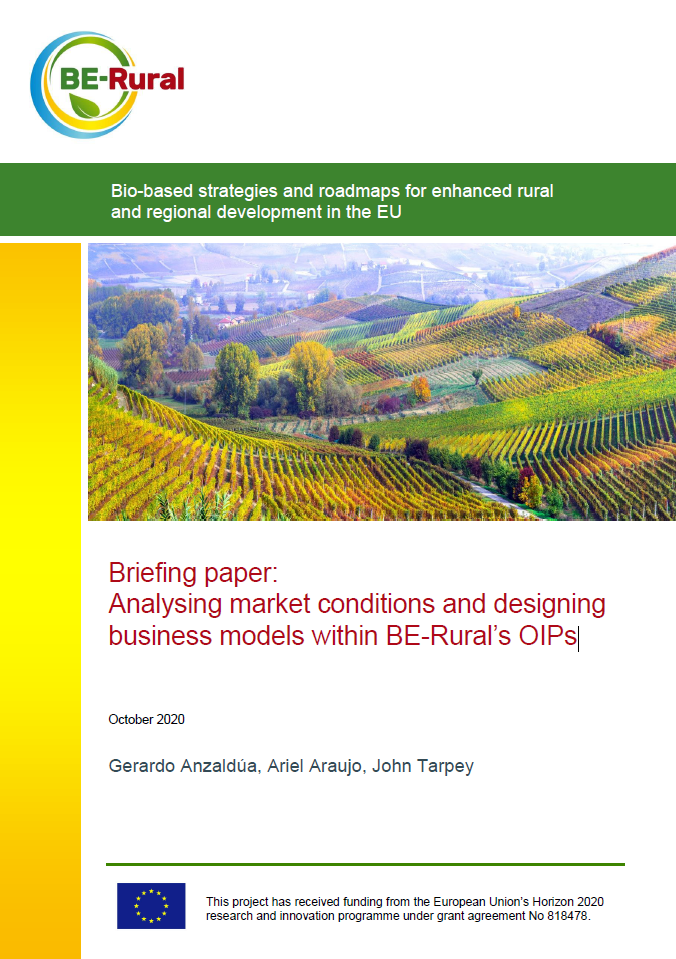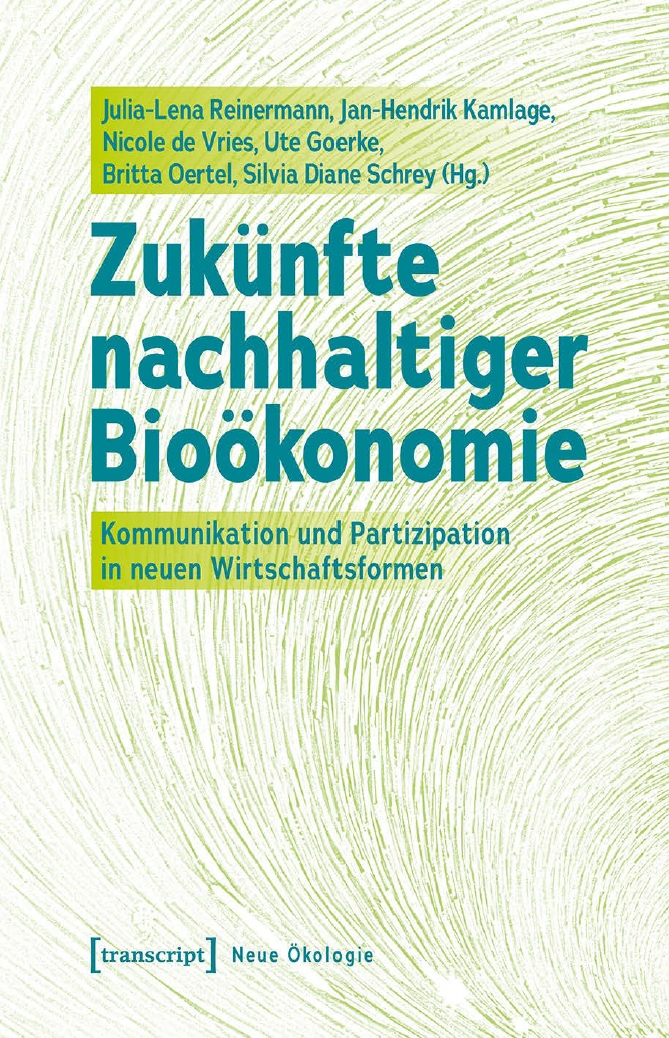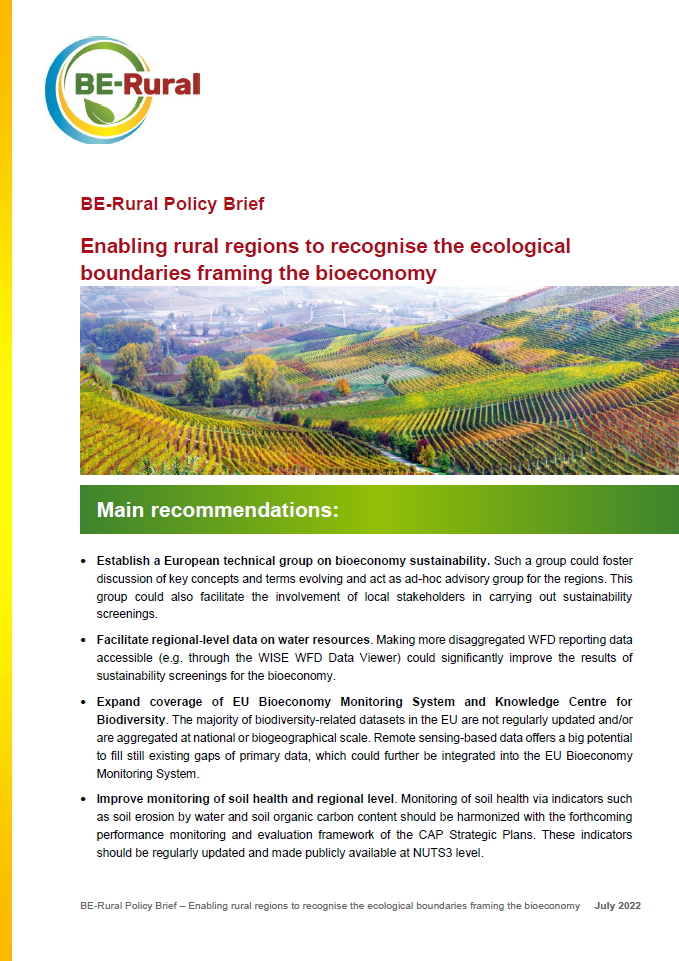Regional Strategy and Roadmap Documents
Deliverable 5.3 H2020 research project BE-Rural
- Publication
- Citation
Kiresiewa, Z., Gerdes, H. (2021). D5.3: Regional strategy and roadmap documents. Deliverable of the H2020 BE-Rural project
Rural regions in Southeastern and Eastern Europe are facing multiple challenges such as a rural exodus, aging populations, a declining industrial base and low innovation performance. As such, they are particularly vulnerable to the negative impacts of climate change. In response to this, stakeholders in the five BE-Rural regions: the Szczecin and Vistula Lagoons, Poland; Stara Zagora, Bulgaria; Strumica, North Macedonia; Vidzeme and Kurzeme, Latvia; and Covasna, Romania, developed bioeconomy strategies and roadmaps for enhanced rural development.
This publication presents short summaries of the regional strategies and roadmaps focusing on the regional context in terms of available natural resources, the social, economic and political context, the strategy development process and the priorities outlined in the strategies.
All the strategies addressing different sectors – ranging from fishery, agriculture, forestry to waste – followed the same methodological approach and address key concepts such as circularity, the sustainability of the biomass supply, the optimization of value creation (cascade use of biomass), the integration of biorefineries into existing or new agricultural and industrial value chains, and demand-side developments.
The development of the bioeconomy strategies and roadmaps was embedded in a structured engagement process and facilitated by regional Stakeholder Working Groups (SWGs). This was further accompanied by targeted knowledge exchange and capacity building aiming at increasing research and innovation capacities of and appropriate transfer of research results to regional stakeholders.
Overall, the strategy development process represents a clear mandate from various stakeholder groups (clusters, regional authorities, research institutions) in the regions for a strong and efficient bioeconomy. This is due to the perceived regional benefits in creating jobs, strengthening economic growth, and providing more sustainable industrial paths.
Looking ahead, permanent stakeholder panels with "bioeconomy ambassadors" will be established in the regions to promote the inclusion of bioeconomy strategies in relevant policy processes at the regional and national level.
The individual strategy and roadmap documents are available at the BE-Rural project website.



